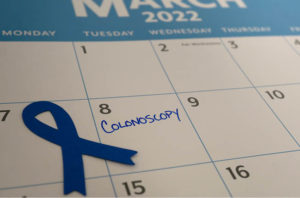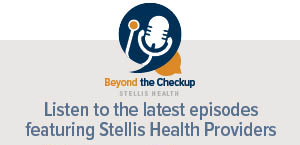When searching for birthday cards at the store, especially for a 50th birthday, inevitably you will find at least a handful with jokes regarding colonoscopies – “Look who’s all grown up and ready for a colonoscopy! Happy 50th Birthday!” There are a multitude of jokes, comics, and memes on the topic, but colorectal care and cancer prevention is no laughing matter. It is estimated that colon cancer causes 50,000 deaths annually. However, if detected early, it is also one of the most treatable forms of cancer.
It may be an uncomfortable topic, but colorectal care and cancer screening should never be ignored. With recently published new guidelines and additional screening techniques emerging, education and awareness is a must.
Need-To-Know Info
- Colorectal cancer (including both colon and rectal cancer) is the 3rd most diagnosed cancer in both men and women in the United States
- In 2018, it was noted that colorectal cancer diagnoses were on the rise among Millennials – people born before 1990 have now double the risk of colon cancer and quadruple the risk of rectal cancer compared to people born around 1950
- Within the last few years, both the United States Preventive Services Task Force (USPSTF) and the American Cancer Society recommended lowering the screening age to 45, as opposed to the previous standard of age 50
- Previously, there was only one approved method for screening – there are now 3 approved methods for testing, including from your own home
Prevention
As with many other diseases, the following health habits will also decrease your risk of colon cancer.
- Learn Your Risk Factors. Knowing your family history is always helpful for overall health – in the case of colon cancer, a family history of similar cancers puts you at a higher risk from genetics, as do being over 50, African American, having diabetes or chronic inflammatory diseases.
- Eat Healthy. Good nutrition helps your body function well on all levels. Cut down on red meat and highly processed meats as they actually increase your risk of colon-related cancers.
- Avoid Smoking/Heavy Drinking. Your body will thank you and your overall health will improve.
- Exercise. Get moving in any way that works for you – physical activity keeps your body functioning well and your weight down.
- Get Screened. This is the most important bullet in the list. Early detection of any physical symptoms or DNA marker abnormalities can potentially prevent cancer or help to save your life. Let’s dive a little deeper on this topic below.
Testing Options
There are 3 different screening options for colorectal cancer. Considering that only one choice existed for many years, this is great news – everyone prefers options.
- Colonoscopy – the classic, much-stigmatized test is known for being awkward, unpleasant, and inconvenient. Much of that has to do with the prep which involves fasting and cleansing, plus finding the time for the test and a driver (light sedation is used on patients for the procedure). That being said, colonoscopies are still the most accurate test at 98% and allows the physician the ability to remove any polyps or growths during the test. A colonoscopy is recommended every 10 years.
- Fecal Immunochemical Test (FIT) – this is one of the at-home test choices recommended for patients of “average risk.” They will require a prescription from your doctor and are covered by most insurance companies. FIT screenings rely on blood in the stool to detect early cancer or a large, bleeding polyp. The accuracy of this test is approximately 80%, although there is risk of false positive results. Abnormal results will require additional investigation through a follow-up colonoscopy. These tests are recommended annually as polyps may not be bleeding at the time of the test.
- FIT-DNA Test (Cologuard) – this is the second of the two at-home test choices recommended for patients of “average risk.” This test will also require a prescription from your physician and is not covered by all insurances due to its higher cost. The Cologuard test differs from the FIT test as it not only looks for blood in the stool, but additionally can detect 11 distinct DNA markers identifying as cancer and precancer. The accuracy rate of the test is approximately 92%; if abnormal changes or blood is found, a follow-up colonoscopy should be scheduled. This test should be repeated every 3 years.


Dale Lawrence, DO Corey Martin, MD
If you are unsure which test is right for you, check with your doctor. Part of the Stellis Health family, Dale Lawrence, D.O. and Corey Martin, M.D. can talk you through your options. Together, they have over 35 years experience performing colonoscopies and endoscopies. Says Dr. Lawrence, “We are here to advise and care for you. In all honesty, the best test is the one that gets done. And home testing is better than no testing at all.”
Stellis Health is here for your health. Contact us today if you have any health questions, concerns, or to schedule an appointment with your provider.







